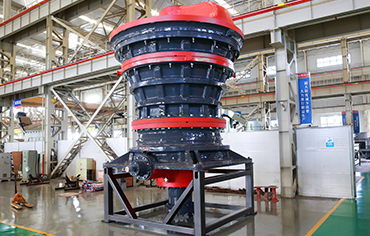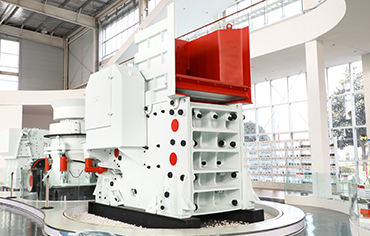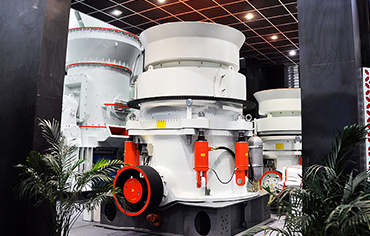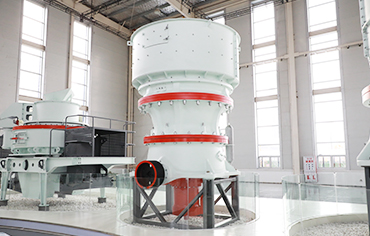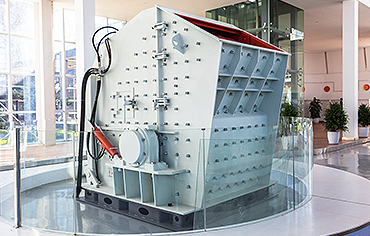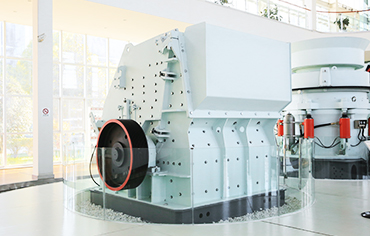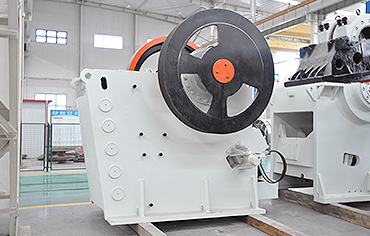أرسل لنا رسالة
erythrocyte sedimentation protein
Sedimentation Rate (Sed Rate): ESR Test Results High vs. Low
Your doctor may also test for your erythrocyte sedimentation rate (ESR) or C-reactive protein (CRP) to help make a diagnosis. Both are acute phase reactants or inflammatory
4Erythrocyte Sedimentation Rate - StatPearls - NCBI
2023年4月23日 The erythrocyte sedimentation rate (sedimentation rate, sed rate, or ESR for short) is a commonly performed hematology
Kevin Tishkowski, Vikas GuptaErythrocyte sedimentation rate and C-reactive protein
2015年6月1日 The erythrocyte sedimentation rate has been used as a surrogate marker for hypergammaglobulinaemia, especially myeloma protein. Where myeloma is
Michael HarrisonESR vs. CRP: Blood Tests for Detecting Inflammation
2021年9月7日 The erythrocyte sedimentation rate (ESR or sed rate) and C-reactive protein (CRP) are among the oldest laboratory tests still in use.¹⁻³ Both bloods tests are used to detect inflammation in the body.⁴⁻⁶ Inflammation can present as either acute (ie, from injury or infection) or chronic.
C-Reactive Protein versus Erythrocyte Sedimentation Rate: Implications ...
Background: Measurements of C-reactive protein (CRP) concentration and erythrocyte sedimentation rate (ESR) are frequently ordered jointly in clinical practice. Aim: To investigate the factors associated with discordances between CRP concentration and ESR in adults. Methods: We conducted a cross-sectional study of 1472 adults with no known
Erythrocyte sedimentation rate and C-reactive protein: how best
DOI: 10.3928/00904481-20140924-10. Erythrocyte sedimentation rate (ESR) and C-reactive protein (CRP) are markers of inflammatory conditions and have been used extensively by clinicians both in outpatient and inpatient settings. It is important to understand the physiologic principles behind these two tests so clinicians may use them
Erythrocyte sedimentation rate - Wikipedia
The erythrocyte sedimentation rate (ESR or sed rate) is the rate at which red blood cells in anticoagulated whole blood descend in a standardized tube over a period of one hour. ... Relation to C-reactive protein. C-reactive protein (CRP) is an acute phase protein. Therefore, it is a better marker for acute phase reaction than ESR.
Sedimentation Rate (Sed Rate): ESR Test Results High vs. Low - WebMD
Red blood cells are called erythrocytes. Sedimentation is the process by which they fall to the bottom of the tube. ... (ESR) or C-reactive protein (CRP) to help make a diagnosis. Both are acute ...
Measuring Inflammation: Erythrocyte Sedimentation Rate (ESR ... - GoodRx
2021年11月23日 Key takeaways: Erythrocyte sedimentation rate (ESR) and C-reactive protein (CRP) are two markers in the blood that measure levels of inflammation. High ESR and CRP levels can be helpful in the short term, but they cause more harm than good if they stay elevated long term. Monitoring ESR and CRP levels can give clues about
ESR test: Procedure, results, and risks - Medical News Today
2018年9月13日 The erythrocyte sedimentation rate (ESR) test is a blood test that can reveal inflammation in the body. ... Erythrocyte sedimentation rate and C-reactive protein. Australian Prescriber, 38(3), 93 ...
What Happens If Erythrocyte Sedimentation Rate is High?
2019年6月1日 Erythrocyte sedimentation rate can be identified as the rate at which red blood cells settle out when anticoagulated is allowed to stand. It is a non-specific indicator of ongoing inflammation and tissue damage. It is affected by the concentrations of immunoglobulins and acute phase proteins like fibrinogen, C-reactive protein, and
Erythrocyte sedimentation rate and C-reactive protein
2015年6月1日 C-reactive protein is a better indicator of inflammation than the erythrocyte sedimentation rate. It is more sensitive and responds more quickly to changes in the clinical situation. False negative and false positive results are more common when measuring the erythrocyte sedimentation rate. Renal disease, female sex and older
Lupus Blood Test Results: What to Know HSS Rheumatology
2022年7月22日 Erythrocyte sedimentation rate (ESR, also sometimes called simply "sedimentation rate" or "sed rate") is an indirect indicator of inflammation. The test measures the rate (in millimeters per hour) at which red blood cells (erythrocytes) settle to the bottom of a test tube of blood. ... C-Reactive protein (CRP) CRP, like the ESR, is an
The association of erythrocyte sedimentation rate, high
2020年7月13日 To evaluate the association between high-sensitivity C-reactive protein (hsCRP) and erythrocyte sedimentation rate (ESR), and diabetic kidney disease (DKD) in patients with type 2 diabetes mellitus (T2DM). A cross-sectional study was conducted in 1210 patients with T2DM, among whom 265 had DKD. The severity of DKD was
Erythrocyte Sedimentation Rate and C-reactive Protein
the ESR; however, RBCs are negatively charged and tend to repel ABSTRACT Introduction: Erythrocyte sedimentation rate (ESR) and C-reactive protein (CRP) are widely used laboratory markers of systemic inflammation. Objective: A thorough understanding of the similarities and differences between these two sero-
Erythrocyte Sedimentation Rate and C-Reactive Protein in the ED
2023年5月29日 Erythrocyte Sedimentation Rate, C-Reactive Protein and Procalcitonin in Infections of the Spine and Infections in Spinal Cord Injury Patients. The Open Infectious Disease Journal. 2015 Mar; 1-12 (9). DOI: 10.2174/1874279301509010001
Inflammation Blood Tests: ESR, CRP and PV Values Patient
2023年7月19日 Erythrocyte sedimentation rate (ESR), C-reactive protein (CRP) and plasma viscosity (PV) blood tests are commonly used to detect inflammation. ... Procalcitonin, C-reactive protein, and erythrocyte sedimentation rate for the diagnosis of acute pyelonephritis in children. Cochrane Database Syst Rev. 2020 Sep 109:CD009185.
The association of erythrocyte sedimentation rate, high
2020年7月13日 To evaluate the association between high-sensitivity C-reactive protein (hsCRP) and erythrocyte sedimentation rate (ESR), and diabetic kidney disease (DKD) in patients with type 2 diabetes mellitus (T2DM). A cross-sectional study was conducted in 1210 patients with T2DM, among whom 265 had DKD. The severity of DKD was
Erythrocyte Sedimentation Rate and C-reactive Protein
the ESR; however, RBCs are negatively charged and tend to repel ABSTRACT Introduction: Erythrocyte sedimentation rate (ESR) and C-reactive protein (CRP) are widely used laboratory markers of systemic inflammation. Objective: A thorough understanding of the similarities and differences between these two sero-
Erythrocyte Sedimentation Rate and C-Reactive
2023年5月29日 Erythrocyte Sedimentation Rate, C-Reactive Protein and Procalcitonin in Infections of the Spine and Infections in Spinal Cord Injury Patients. The Open Infectious Disease Journal. 2015 Mar; 1-12 (9).
Inflammation Blood Tests: ESR, CRP and PV Values Patient
2023年7月19日 Erythrocyte sedimentation rate (ESR), C-reactive protein (CRP) and plasma viscosity (PV) blood tests are commonly used to detect inflammation. ... Procalcitonin, C-reactive protein, and erythrocyte sedimentation rate for the diagnosis of acute pyelonephritis in children. Cochrane Database Syst Rev. 2020 Sep 109:CD009185.
Factors influencing erythrocyte sedimentation rate in adults
2019年8月23日 The erythrocyte sedimentation rate (ESR) is a routine test for inflammation. Few studies have investigated the potential influence of lifestyle factors and common metabolic abnormalities on the ESR. ... How age and sex affect the erythrocyte sedimentation rate and C-reactive protein in early rheumatoid arthritis. BMC
Evaluation of platelet count, erythrocyte sedimentation rate and
2020年7月1日 Biomarkers such as interleukin (IL)-6, IL-8, platelet count, erythrocyte sedimentation rate (ESR) and C-reactive protein (CRP) have been considered for the diagnosis of sepsis. CRP is produced in the acute phase of infection by the liver, and an increase in CRP serum levels is a known diagnostic marker for inflammation and infection ...
Erythrocyte Sedimentation Rate, C-Reactive Protein, or
2009年7月1日 Objective. To analyze erythrocyte sedimentation rate (ESR), C-reactive protein (CRP), and rheumatoid factor (RF) tests in 2 databases of consecutive patients with rheumatoid arthritis (RA) over 25 years between 1980 and 2004, in Finland and the USA. Methods. Databases of 1892 patients of 7 rheumatologists in Jyväskylä, Finland, and 478
Erythrocyte Sedimentation Rate and C-reactive Protein ... - PubMed
Introduction: Erythrocyte sedimentation rate (ESR) and C-reactive protein (CRP) are widely used laboratory markers of systemic inflammation. Objective: A thorough understanding of the similarities and differences between these two serological markers, including factors that affect measurements, is necessary for the proper utilization and
Erythrocyte Sedimentation Rate (ESR) Test Normal Levels
2022年12月15日 Erythrocyte sedimentation rate ( ESR) test or “sed rate test”, is a blood test that checks for inflammation. It measures the distance in millimeters that red blood cells fall in one hour (mm/hr) [ 6, 7 ]. There are a few ways that this is measured, such as the Westergren method, Wintrobe Method, MicroESR, and automated methods [ 8, 9, 10 ].
Erythrocyte Sedimentation Rate and C-reactive Protein
2016年12月1日 Although discordance may be encountered in certain settings, proper utilization of ESR and CRP measurements continues to play an important role in clinical management of many inflammatory and other conditions. INTRODUCTION Erythrocyte sedimentation rate (ESR) and C-reactive protein (CRP) are widely used laboratory
Erythrocyte sedimentation rate and C-reactive protein
2015年6月1日 The erythrocyte sedimentation rate is a surrogate marker of the acute phase reaction. During an inflammatory reaction, the sedimentation rate is affected by increasing concentrations of fibrinogen, the main clotting protein, and alpha globulins.
Correlation between erythrocyte sedimentation rate and C
2015年12月8日 Introduction. The erythrocyte sedimentation rate (ESR) is the oldest acute phase index. The phenomenon was described by John Hunter [] and applied as a laboratory test by Edmund Biernacki [].Erythrocyte sedimentation rate was probably the most commonly used laboratory test in the 20 th century. Currently, the clinical
ESR (Erythrocyte Sedimentation Rate): Testing, Levels More
2023年4月14日 An ESR (erythrocyte sedimentation rate test) is a blood test that helps detect inflammation from autoimmune diseases, infection, cancer, and more. ... Your doctor may order a C-reactive protein ...
MGUS: It’s about the protein, not just the marrow
2019年1月1日 It is a relatively uncommon cause of some common laboratory and clinical anomalies. Thus, residents must field questions such as, “What is a cause of a high erythrocyte sedimentation rate with a concurrently normal C-reactive protein level and a low anion gap?”

